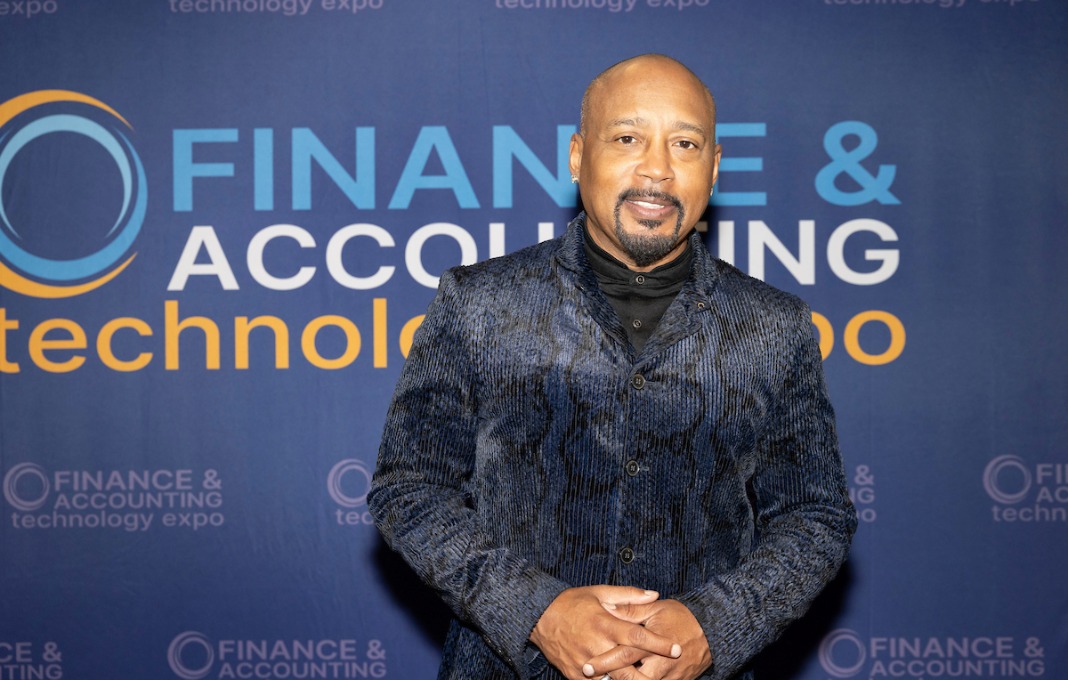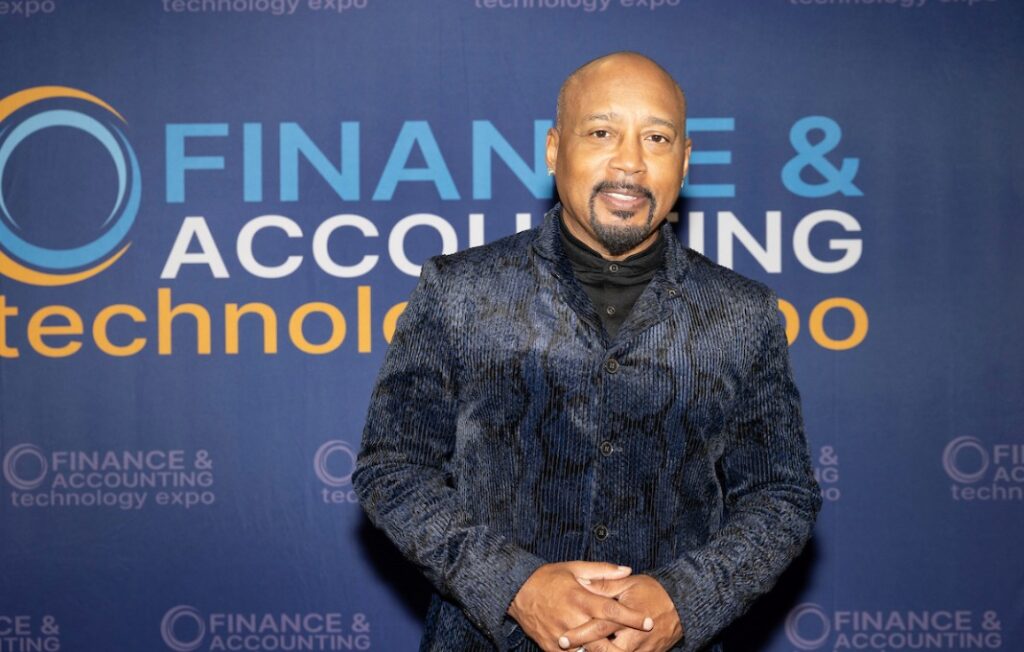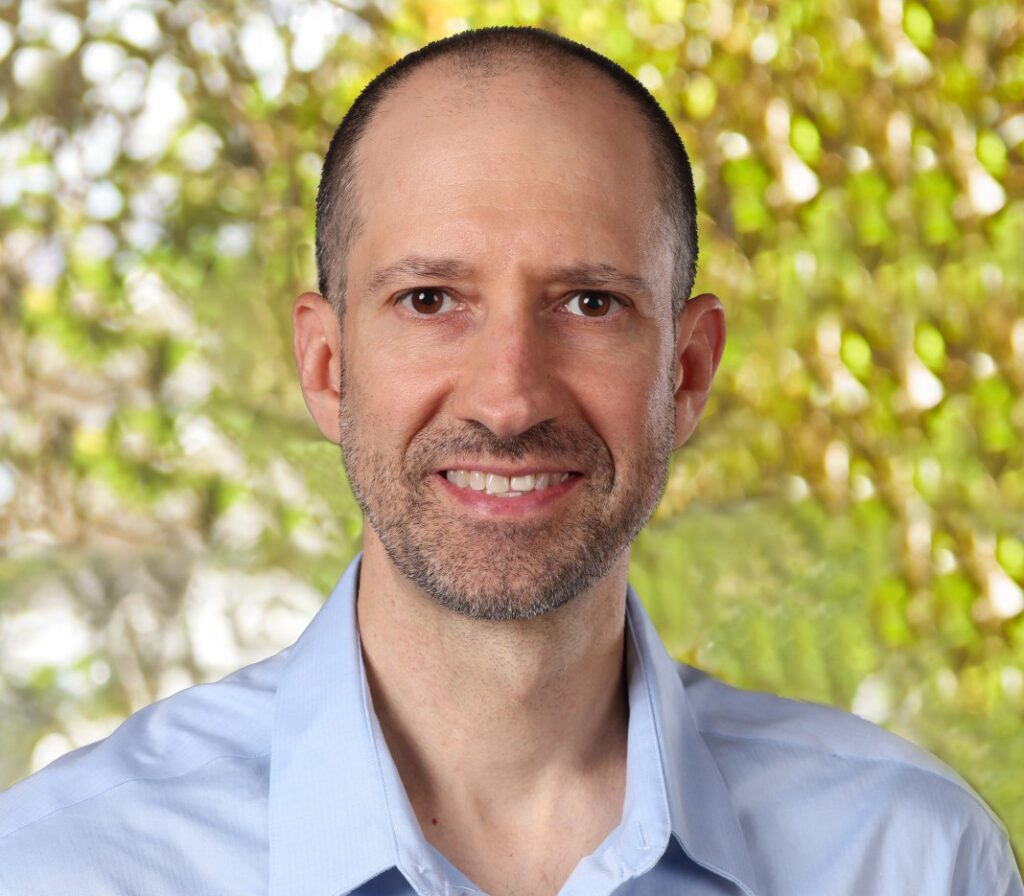“There’s no difference between you and me,” Daymond John told a standing room-only crowd at the opening of the inaugural Finance & Accounting Tech Expo at New York’s Javits Convention Center this week. “I call you my fellow sharks.”
John was referring to the fact that the assembled CFOs and their teams are all people focused on “how to make things better for their employees, for their investments and various other things…. You are the people I go to to help me with all that crap I buy on Shark Tank.”
But John, whose rags-to-riches story filled with hip-hop lore riveted the crowd, is not your typical financial type. He grew up in a tough Queens neighborhood where the most visible presence was “pimps and drug dealers driving by in fancy cars.” Instead of taking his cues from that bunch, he learned from the everyday “heroes waking up at 5 o’clock,” who after getting their kids to school and working all day and sometimes evening, got home at 9 or 10 to sleep and do it all again.
Eventually, John took a $10 effort in his grandmother’s basement and turned it into a $6 billion global business as the cofounder and CEO of the apparel company FUBU; he’s a beloved TV personality, bestselling author and more.
And he’s learned a lot about success along the way. He’s distilled his “entrepreneurial thinking” down to five points—“super simple, super complicated”—that can make the difference. “Every single time that I’ve succeeded, every one of these points are in place,” he said. “And every single time that I have failed, only one of these points is missing.” They include:
Set goals. John isn’t talking about a to-do list; it’s something more personal: Dream yourself into success, and don’t worry about being vulnerable. “I’m talking in a room full of financial experts and you set goals every day. But if you don’t set goals for yourself, you let others set goals for you. You can’t get the girl, you can’t get the guy, you can’t turn from the CFO to be the CEO… We become what we think about most of the time. And I grew up in a community where the people that we paid to protect us told us we were all gonna be dead or in jail by the age of 21 and 95 percent of my friends are dead or in jail.” He became who he is today because he set different goals, and he even today goes over them every morning and every night.
Do your homework. “There’s technically nothing new in this world,” said John. The Voice “is just American Idol—all they did was turn the chair. And American Idol’s not new either. That’s The Gong Show without the gong. The Gong Show is Showtime at the Apollo without the Sandman.” Know who else out there is doing or did something similar—and learn from them.
Find “amor.” Love is the key to it all, John emphasized: love of what you do, romantic love, love of your family. He shared that his first wife left him because he was so unavailable when he first started out in business, and that today his new baby gives him the inspiration to do even more.
Remember you are the brand. “We do not invest in companies, we invest in people,” John said about Shark Tank judges. “Can you put yourself in two to five words? For Apple it was ‘think different.’ Nike, ‘just do it.’ Because if you don’t know what the two to five words that you stand for are when you walk into the room, you leave it up to us to interpret. Have you asked your kids what their two to five words are? Ask your staff, ‘What are your two to five words?’ Then you’ll understand how to master the pitch.”
With his final point, John turned really personal by talking about physical health and his own experience with stage two cancer. Nothing else matters if you don’t pay attention to becoming and staying healthy, and no one else can do it for you, he noted:
Keep swimming. “If I can get one of you hard-headed people in this room—it’s probably gonna be a male to go get a colonoscopy and of course for the women, pap smears and mammograms—then I’ve done my job.”







